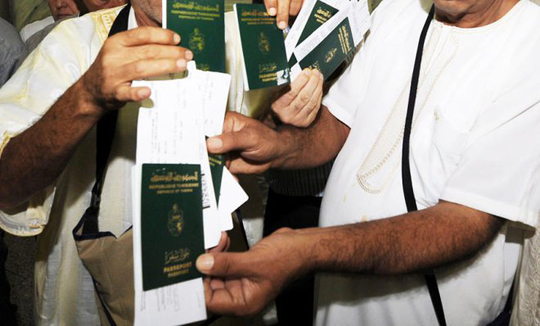Jeddah, Sep 15: The Ministry of Haj and Umrah returned nearly SR500 million to 48,400 people who had fallen prey to unscrupulous companies that falsely claimed that they could organize Haj for those desiring to perform the pilgrimage.

About 45 such fraudulent companies were identified.
Ministry sources described the move as a significant “achievement,” not for the ministry alone, but for all authorities involved in Haj management, including security authorities.
In a related move, Haj and Umrah Ministry spokesman Hatem Qadi said more than 256,000 people were arrested at 21 ports for not having the necessary Haj permits and 100,000 vehicles were prevented from transporting undocumented pilgrims.
He said these results point to the high levels of accomplishments achieved because of coordination and planning that began three months before Haj.
He said what made this Haj clearly different was the use of modern technology to serve pilgrims, including the electronic bracelet, which enabled easy access to information and decision making.
The bracelets enabled rapid identification of pilgrims, especially helpful for those who do not speak Arabic, and helped the ministry identify their accommodations and personal information to provide guidance and assistance.





Comments
Masha Allah gud work done by saudi gov
Add new comment